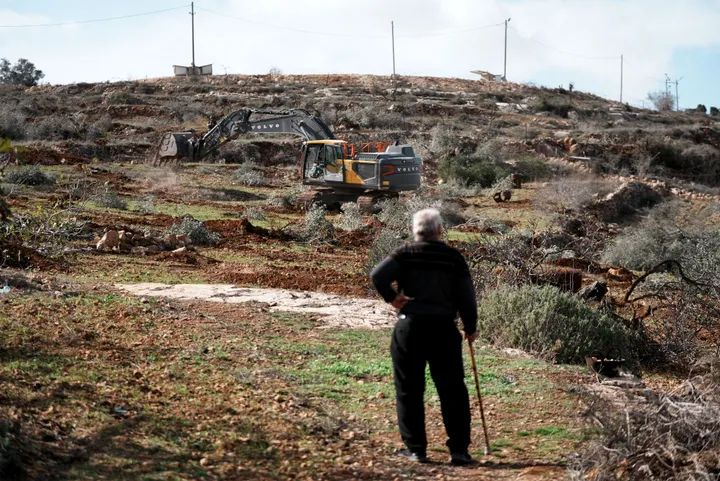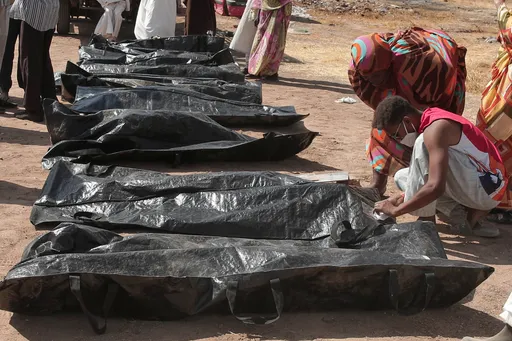By Sylvia Chebet
The cries of newborns echo ceaselessly through a ward of Nyala Teaching Hospital in Sudan's South Darfur as anxious faces flit in and out of the hall and healthcare staff grimly go about their business.
Amid the nervous activity in the ward, one infant is curiously silent, almost as if she were lulled to sleep in a tight maternal embrace. The mother's distraught eyes give away the reality.
The baby, it turns out, has succumbed to sepsis — a medically preventable death, if only Sudan's healthcare system hadn’t collapsed under the weight of conflict.
"In war, there are no unwounded soldiers," the Argentine writer José Narosky said.
It's a truism illustrated by the sufferings of babies born into conflict and stalked by sepsis, a life-threatening condition in which the body's immune system has an extreme response to an infection in the form of tissue damage and organ dysfunction.
The paediatric wards of Nyala and Kas Rural hospitals alone reported 48 infant deaths due to sepsis between January and June this year, according to a report by the global charity Médecins Sans Frontières (MSF).
The report, 'Driven to Oblivion: The Toll of Conflict and Neglect on the Health of Mothers and Children in South Darfur', also mentions 46 maternal deaths across the two hospitals during the January-August period.
"This is a crisis unlike any other I have seen in my career," says Dr Gillian Burkhardt, MSF's sexual and reproductive health activity manager.
Healthcare hiccups
The World Health Organisation (WHO) reported 11 million sepsis-related deaths worldwide in 2020, which illustrates the gravity of this medical challenge.
But sepsis can be avoided with timely treatment of infections and maintaining sanitised environments, both of which are currently a luxury that pregnant Sudanese mothers and newborns can only wish for as the war between the armed forces and the Rapid Support Forces rages on.
Without essential items such as soap, clean delivery mats and sterilised instruments, infections are rampant.
Antibiotics are in low supply, and mothers and babies in distress often arrive at a hospital but don't get the medical treatment they urgently need.
"They have nowhere to turn to," says Dr Burkhardt. “Newborn babies, pregnant women, and new mothers are dying in shocking numbers. Everything has broken down."
Functional healthcare facilities in South Darfur are few and far between. That, coupled with unaffordable transportation costs, means many women don't get treatment until it is too late.
"A pregnant patient from a rural area waited two days to collect the money needed to get care. By the time she travelled to a health centre, they had no drugs, so she went back home," recalls Maria Fix, MSF's medical team leader in South Darfur.
"After three days, her condition deteriorated. Again, she had to wait five hours for transportation. She was already in a coma when she reached us."
The woman and her unborn baby would become part of the statistics that have come to define Sudan as one of the most dangerous places on earth to give birth because of the war.
"She died from a preventable infection," laments Maria.
According to the MSF report, 78% of maternal deaths occur within the first 24 hours of admission.
"I have seen many die in the first hour as they are already in a critical condition by the time they reach us," Dr Burkhardt tells TRT Afrika.
The deaths recorded in Nyala and Kas hospitals between January and August constitute more than 7% of the maternal deaths in all MSF facilities worldwide in 2023.
Systemic collapse
Dr Muddater Ahmed Yahya Basher, whose act of swimming through floodwaters to access a hospital to deliver a baby was captured recently in a viral video, reckons the healthcare system across Sudan has collapsed.
The situation is no different in Tokar, near the Red Sea in northeastern Sudan, where he is based.
"We are living in the most difficult period, and I hope that all countries stand with Sudan and its people. We need to stop the war, restore peace and bring displaced people back to their homes," Dr Basher tells TRT Afrika.
Thousands of children are on the brink of starvation and death.
In August, 30,000 children under two years old were screened for malnutrition in South Darfur. Of these, 32.5% were found to be acutely malnourished, well beyond WHO’s emergency threshold of 15%.
The crisis risks trapping families in protracted cycles of malnutrition, sickness, and deteriorating health spanning generations.
A couple who took in eight children after they lost their mother to severe bleeding while giving birth to twins, told an MSF team that they were struggling to take care of the kids.
"We don’t earn enough to feed them. We are now 13 in the house. We make do with porridge and sauce with a bit of salt and little or no oil," the foster parents said.
Dr Burkhardt is concerned about inter-related crises compounding the sufferings of people across Sudan.
"Multiple health emergencies are happening simultaneously. with almost no international response from the UN and others," she says.
"The disparity between the huge needs for healthcare, food, and basic services, and the consistently lacking international response is disgraceful."
Supply shortages are aggravated by the warring parties, which continue to block or restrict access to lifesaving aid.
➤Click here to follow our WhatsApp channel for more stories.









.JPG?width=512&format=webp&quality=80)












